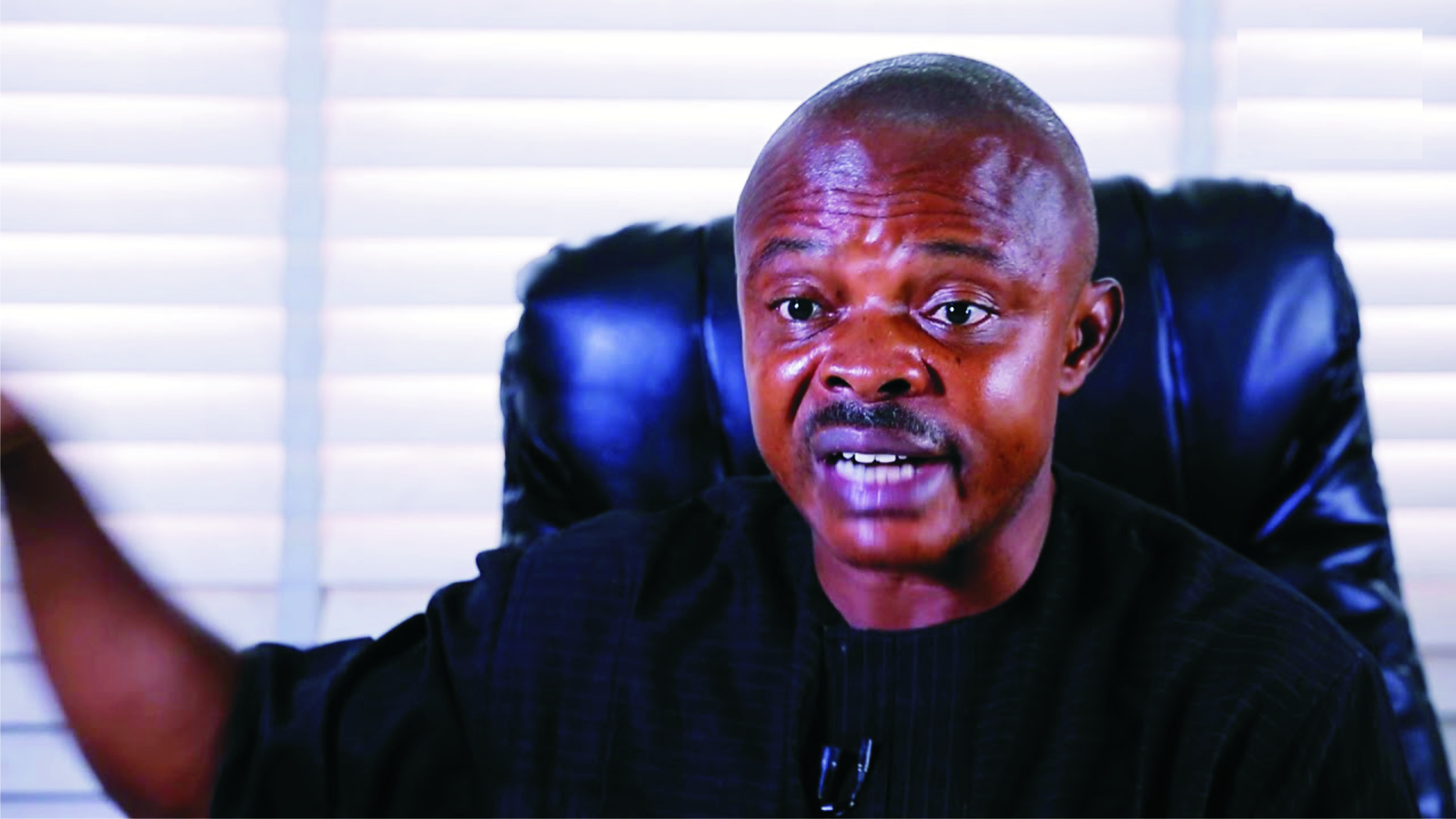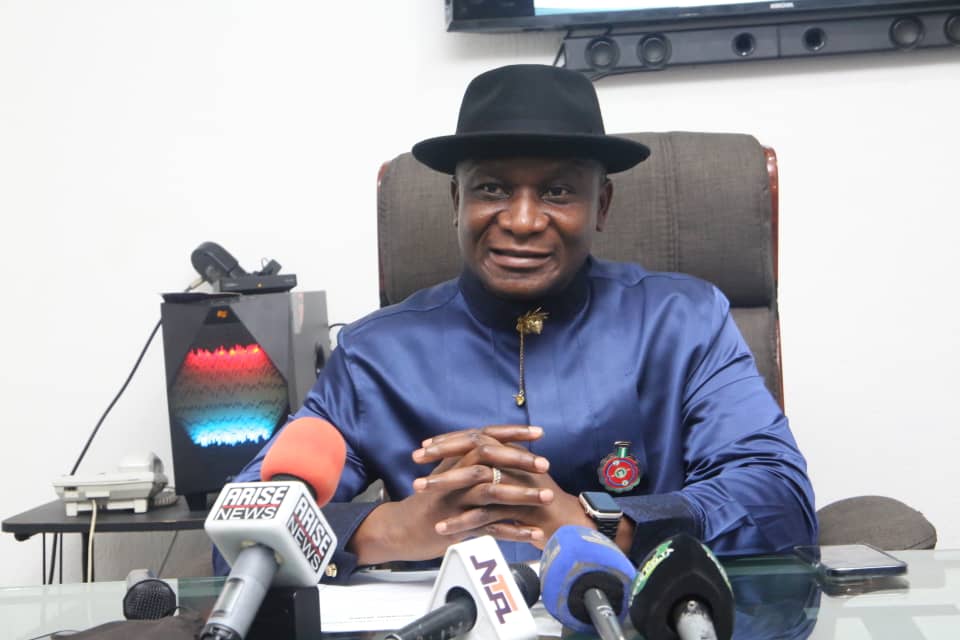News
Nigeria’s Economy In Bad Shape, UNDP Admits
Amidst declining revenue and foreign exchange earnings coupled with rising debt service payments, a United Nations Development Programme (UNDP) report on Imagine Nigeria, has declared that the country’s economy is in very bad shape.
According to the report, to be launched, today, the COVID-19 pandemic has been detrimental to Nigeria’s economy, now made worse by a decline in revenue and foreign exchange earnings due largely to the fall in oil prices and reduced demand.
The report also noted that the decline in revenue meant an overdependence on borrowing and an increased debt service payments with more than half of the annual Federal Government revenues being used to service debts.
The report said “Beyond the short-term challenges for the oil sector, principal forex earner for Nigeria are the longer-term concerns as the world makes determined moves to reduce the consumption of fossil fuels.
“Unemployment, underemployment and their effects on poverty have remained a bane for Nigeria. If no urgent measures are deployed soon, Nigeria with its teeming population is certain to fall in desperate times. Already, the World Bank projects that about five million Nigerians will fall below the poverty line,” UNDP said.
The report regretted that the manufacturing sector which could have provided succour is also battling challenges such as poor power supply, multiple taxation and inadequate infrastructure.
“This does not mean progress has not been made in the sector as measures such as faster business registration time, improved imports and exports systems have been introduced. If more appropriate interventions are deployed, the manufacturing sector is sure to experience growth and be able to contribute more than the 12.82per cent it contributed to the economy in 2020” the report noted, adding that if agriculture sector can be more productive it can surpass the oil sector if the challenges of poor adoption of improved farming methods, inadequate infrastructure and insufficient credits are addressed.
“Like other factors, Nigeria is faced with a serious infrastructure deficit. This cuts across housing, water, power, telecommunications and transportation network”.
Reacting to the UNDP verdict, Founder/CEO, Centre for the Promotion of Private Enterprise (CPPE),Dr Muda Yusuf, noted that Nigeria’s economy is characterised by diverse economic vulnerabilities, which have had devastating effects on businesses.
He listed such headwinds with terrible effects on the economy; to include unprecedented surge in energy prices with huge adverse effects on economic players across all sectors; as well as high levels of currency depreciation and currency volatility; as well as increasingly weak fiscal space; acute foreign exchange scarcity with very profound effects on investors across all sectors.
Yusuf said that above all, Nigeria’s rising public debt and debt service burden; worsening security situation as well as elevated political risk as a result of political transition processes and activities are not helping the nation’s recovery strategies. These adverse developments are further compounded by growing fuel subsidy burden; weak infrastructure; falling investors’ confidence and depressed purchasing power.
Also speaking, Chairman, Apapa branch of Manufacturers Association of Nigeria, Mr. Frank Onyebu, said, “To say that Nigeria’s economy is wobbling is to put it mildly. Sometimes, it feels like an understatement.
The economy can be said to be in a state of comatose.
“Factors responsible for this are numerous and include a hostile investment environment, complete dilapidation of infrastructure, insecurity and corruption to mention but a few.
“The economy can best be retooled by the creation of an enabling environment for businesses to thrive. The government should start by investing massively in infrastructure. The government may choose to concession some of the infrastructure since it doesn’t have currently enough resources.
“The worsening insecurity in Nigeria is a major problem for investors in the economy. Many Industrialists especially those who are in the agro-allied sector are grappling with challenges getting raw materials from the crop producing areas of our country. This has continued to negatively impact capacity utilization, turnover, cost of production and the value delivery to shareholders. Some now source raw materials from neighbouring West African countries.
“Insecurity has also created a very serious country risk and reputational problem for our country”.
The figures released by the Finance Minister, Mrs.Zainab Ahmed, during the presentation of the 2023-2025 Medium Term Expenditure Framework, painted a gloomy and disturbing picture of the state of government finances, suggesting that the government is on the brink of bankruptcy.
Debt service to revenue ratio for the first four months of the current year is over 100percent.
“The implication of this is that the actual revenue of government over the period is not sufficient to service debt.
“Therefore, financing of the operations of government – personnel cost, overhead cost, capital expenditure and even part of the servicing of the debt will have to come from additional borrowing. These portend severe vulnerabilities for the Nigerian economy.
News
May Day: Labour Seeks Inclusiveness In Policy-making

The Organised Labour yesterday, called on the Federal Government to ensure inclusiveness in policy making and guide against erosion of rights, such as free speech and association.
The President, Nigeria Labour Congress (NLC), Mr Joe Ajaero made the call at the 2025 Workers’ Day celebration held at the Eagle’s Square, Abuja.
The Tide source reports Ajaero and the President, Trade Union Congress, Mr Festus Osifo delivered a joint statement on behalf of the organised labour at the event.
Ajaero described May Day as, not only a moment to honour workers’ sacrifices, but also a platform to demand justice and accountability from those in public office.
He frowned at the alleged suppression of protests, and the erosion of rights of workers by some agents
According to him, workers have a duty to resist economic injustice, insecurity, and policies that undermine their dignity.
Speaking on the theme of the day, the NLC President underscored the need for Nigerian workers to reclaim the civic space and resist policies that contribute to worsening economic conditions.
“Our theme this year – “Reclaiming the Civic Space in the midst of Economic Hardship – reflects the urgent need for citizens to protect democracy and push back against repression.
“The civic space, where Nigerians express their concerns and challenge injustices is shrinking.
“If we fail to reclaim this space, the foundation of our democracy risks collapse,” he said
Ajaero, therefore, urged workers to unite and resist division, fear, and despair.
He also urged them to mobilise and organise for change, declaring that the right to demand better conditions is non-negotiable.
“Without workers, there is no society; without labour, there is no development. We must take our place in the fight for economic justice and democratic governance.”
Speaking in the same veins, Osifo said workers are the backbone of the nation—the educators, healthcare providers, builders, farmers, and innovators who sustain its economy -.
He stressed the need for the labour to reclaim the civic space even in the midst of economic hardship.
News
2025 UTME: JAMB Disowns Site Requesting Payment From Candidates

The Joint Admissions and Matriculation Board (JAMB) has disassociated itself from a fraudulent site requesting payments from candidates who missed the ongoing 2025 Unified Tertiary Matriculation Examination (UTME).
The board said that the site, “Copyrightwriter Personal J Rescheduling Flw” and account number 8520641017 at Sterling Bank, associated with it, are scam.
The disclaimer is contained in a statement made available to newsmen in Abuja on Thursday by the Board’s Public Communication Advisor, Dr Fabian Benjamin.
Benjamin said the account is being exploited to defraud unsuspecting candidates who missed their UTME.
“We issue this urgent notice to inform the public about this nefarious scheme targeting candidates who were unable to participate in the UTME.
“Some unscrupulous individuals are deceitfully soliciting payments of N15,700 under the false pretence of offering rescheduling services for the examination.
“Let us be unequivocal: this, it is a blatant scam, and we are confident that the public will not fall prey to such cheap and regressive tactics.
” The individuals behind this scam have no affiliation with JAMB or any legitimate government agency.
“The account details provided in these communications are entirely fictitious and bear no connection to any official processes; they exist solely for the purpose of perpetrating fraud,” he said.
Benjamin called on Sterling bank to take immediate and decisive action against this criminal activity.
According to him, JAMB has reported the matter to the relevant security agencies and actively pursuing those responsible for this deceitful act.
He further said that “JAMB does not reschedule examinations for candidates who miss their scheduled tests due to reasons unrelated to the Board’s actions”.
He, however, said that the Board is conducting a thorough investigation for candidates whose biometrics failed during verification and were thus unable to sit for the examination.
He said those without discrepancies would be invited to retake the examination at no cost , stressing that “no cost is required”
“It is imperative to understand that JAMB does not charge any fees for examinations after a candidate has completed their registration.
“We strongly urge all candidates to remain vigilant and not to succumb to these fraudulent schemes.
“Protect yourselves and report any suspicious activity immediately,” he explained.
News
NDDC Seeks UN’s Support To Accelerate Niger Delta Development

The Niger Delta Development Commission (NDDC) has expressed its willingness to partner with the United Nations (UN) to accelerate the development of the Niger Delta region.
Dr Samual Ogbuku, Managing Director of the NDDC, made the appeal in a statement issued by the commission’s Director of Corporate Affairs, Mrs Seledi Thompson-Wakama, in Port Harcourt on yesterday.
According to the statement, Ogbuku sought the UN’s support during his visit to the UN Resident and Humanitarian Coordinator (UNRHC), Mr Mohammed Fall, at the UN regional office in Abuja.
He called on the global body to provide the NDDC with technical assistance and expert services to support the region’s development.
“We are eager to collaborate with the UN, recognising that the state governments in the region and the NDDC alone cannot achieve the level of regional development required,” he said.
Ogbuku identified key areas where support would be needed, including the provision of portable and affordable drinking water powered by high-tech solar energy sources.
He also highlighted the importance of reforesting the mangrove swamps, which have been severely damaged by decades of environmental degradation caused by oil exploration in the Niger Delta.
“Although the NDDC has made progress in providing solar-powered streetlights across the region, we still require UN support in delivering solar energy solutions for residential buildings.
“We also wish to explore the possibility of installing solar mini-grids in homes across communities, which would boost local commerce and trade,” he added.
The NDDC managing director further appealed for increased UN involvement in areas such as healthcare, education, youth training, gender development, and food security.
Ogunku stated that such interventions would significantly enhance the standard of living in the region.
In response, Fall affirmed the UN’s readiness to collaborate with the NDDC to fast track development in the Niger Delta.
He assured that the UN would support initiatives in food security, job creation, education, and renewable energy, among other areas.
“We aim to approach development in the Niger Delta holistically, rather than focusing solely on environmental pollution.
“This is merely an entry point; however, the UN’s development vision aligns with the Sustainable Development Goals (SDGs), which are designed to positively impact various aspects of people’s lives,” Fall stated.
He assured the NDDC of continued and fruitful engagements to drive the region’s development.

